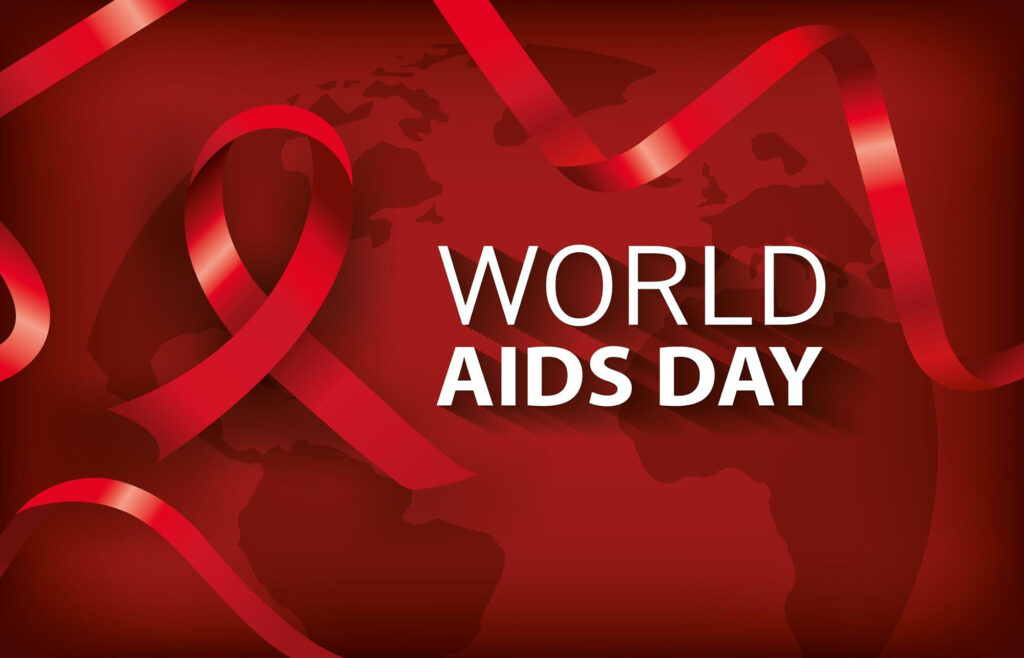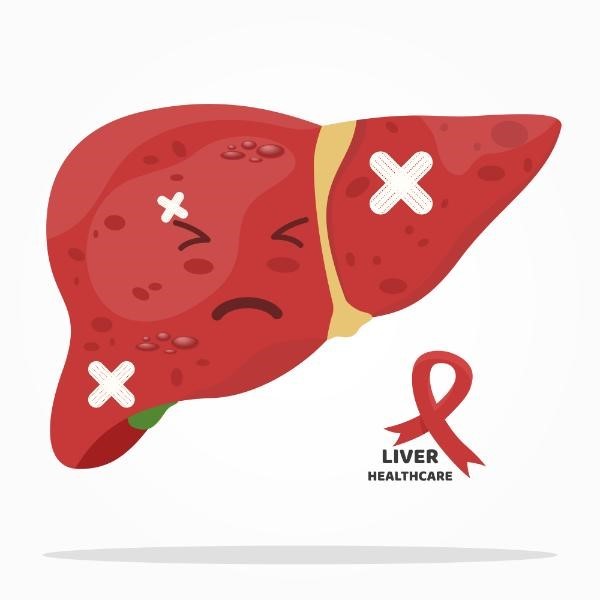According to the center for disease control (CDC), about 1 in 5 people in the US have a sexually transmitted infection (STI) on any given day. STIs cost the US healthcare system billions of dollars every year. What do you think about those numbers? They are startling, don’t you agree? What is a sexually transmitted infection? Sexually transmitted infection is termed as a condition that is passed from person to person from sexual contact.
About 50% of STIs occur in adolescence and adults under 25 yrs old. However, that leaves the other 50% that occurs in other age groups. Studies show that STIs are on the rise in people over 45 yrs. Old. It is a myth that people over 70 yrs old do not have sex. As long as you are having sex you may be at risk of contracting an STI, no matter what your age is.
Do not be too embarrassed to discuss sex and STIs with your doctor. If you are having sex that might put you at risk even if you do not have symptoms. It is wise to talk with your doctor at least at your yearly check-up about if they recommend testing for any STIs.

If a person has an STI and they have unprotected oral, anal, or vaginal sex with anyone there is a chance that the other person will get the STI. STI is also known as venereal disease (VD) or sexually transmitted disease (STD). It doesn’t mean that an STI is only transmitted through sex. Some STIs can also be transmitted through breastfeeding and sharing needles. Being informed about the different STIs, symptoms, and treatment is important to making good decisions to protect your health.
How do you protect yourself? The only sure way is by not having sex with another person, at all. Masturbation alone or with a partner can be a pleasurable sexual release without the worry of an STI. If no bodily fluids are exchanged.
A way to minimize your risk is being in a monogamous (where two people only have sex with each other) relationship and practicing safer sex. Before deciding to have a sexual relationship with someone you should discuss your past sexual history, including if either of you has had or does have an STI.
You should discuss any history of injectable drug use. A discussion about any expectations of monogamy should take place before sex. A discussion about what it means to practice safer sex should be discussed and practiced every time you have sex.

How To Practice Safe Sex (safer sex)
Practicing safer sex can decrease your risk of getting an STI significantly. However, No sex is completely safe. Some STIs can be transmitted by skin-to-skin contact. Such as genital warts, herpes, and syphilis. Oral herpes if active can be spread by kissing and saliva, even to the genital area. There is a small chance of spreading it without symptoms.
- Ideally, both partners should be tested for STIs and then only have sex with each other.
- Check your own body and ask your partner if they have. Any sores, bumps, or unusual discharge may indicate an STI infection.
- Use a male condom or female condom should be used for oral sex, vaginal or anal sex. If a latex allergy is a concern use a polyurethane condom.
- Do not use condoms made from natural materials; they do not protect you from STIs.
- If you are sharing a sex toy put a condom over it. Change it when switching from one person to the other.
- Use a lubricant. Make sure it is compatible with the condom you are using.
- For female oral sex, a dental dam can also be used as a barrier to prevent an STI.
- If you have any symptoms or concerns that you may have an STI. See your doctor right away. If caught early it is easier to treat and minimize the spread.
- If you are sexually active at any age see your doctor and discuss your sexual health at least yearly.
SEXUALLY TRANSMITTED DISEASES AND SYMPTOMS and TREATMENTS
CHLAMYDIA AND IT’S TREATMENT
Chlamydia is a bacterial infection, it is a common STI. The mode of transmission is unprotected anal, oral, and vaginal sex. Oftentimes people have no symptoms. When they do the symptoms they have may include.
Symptoms a woman with Chlamydia may have
- A woman may have a discharge that may be yellow and could have an odor.
- Another symptom may be pain/burning while urinating.
- She may also have bleeding that occurs when she does not have her period.
- She may bleed after vaginal penetration.
Symptoms a man suffering from chlamydia may experience
- discharge from the penis
- painful urination
Both women and men can have bleeding from the rectum as a symptom. If they have anal sex and get infected. Testing for chlamydia can be done with a urine sample or swab of the vagina and in men the (urethra) opening or anus. After diagnosis, it is treated with antibiotic medication.
If chlamydia goes untreated in women it can cause fertility problems. If a woman has chlamydia when she delivers a baby vaginally the baby is at risk of an eye infection that may cause permanent damage to the baby’s sight. It can also cause pneumonia in the newborn.
GONORRHEA AND IT’S TREATMENT
This sexually transmitted infection can cause severe infection in the genitals, throat, and rectum. This STI is spread by having oral, anal, or vaginal sex with a person who has it. Often a person with Gonorrhea has no symptoms this occurs more often in women than men.
Possible symptoms women with Gonorrhea can have
- Fever
- Pain in the lower abdomen
- Vaginal discharge may have a green tinge to it
- Pain during intercourse
- Sore throat
- Increased frequency of urination
Possible symptoms men with Gonorrhea can have
- A pus discharge from the penis
- Redness or irritation at the penis opening(urethra)
- Frequent urination
- A chronic sore throat
- Testicle swelling or pain
Gonorrhea is diagnosed by swabbing the throat, vagina, penis, or rectum. Gonorrhea is a bacterial infection and is usually treated with a single shot of antibiotics. If Gonorrhea is not treated early it can cause damage to the reproductive system of both women and men. It is not common but Gonorrhea can damage your heart valves and infection can settle in a joint. A blood test would show if Gonorrhea is in your blood.
TRICHOMONIASIS AND ITS TREATMENT
This STD is caused by one-celled protozoan that spreads during sexual contact with the vagina or penis. About 3 million people are diagnosed with Trichomoniasis in the US each year. Only about 30% of people having this STI show symptoms.
Symptoms of Trichomoniasis in women
- Vaginal discharge that is frothy and has a foul odor
- Genital itching
- Pain or bleeding during intercourse
- Genital burning
- Redness of genitals
- Painful urination
Symptoms of Trichomoniasis in men
- Burning after urination or ejaculation
- Discharge from the urethra
Trichomoniasis is diagnosed by an antigen test or cell cultures. It can be fully cured by using antibiotic medication. But if left untreated, it can cause pelvic inflammatory disease in women. Pregnant women having this STI may have preterm labor and deliver underweight babies.
SYPHILIS AND IT’S TREATMENT
This sexually transmitted infection has 4 stages if not treated. Syphilis begins as a sore on the genitals, mouth, or rectum. Sores can also be found on the soles of a person’s feet and palms of hands. The sore is painless. Syphilis is spread when during sex a healthy person comes in contact with a syphilis sore. This is stage 1 of syphilis and it occurs up to about 90 days after exposure.
Then stage 2 occurs about two to three months after exposure. A rash develops often on the palms of the hands and the soles of the feet. The rash can be anywhere on the body. The person also may have a fever and swollen lymph nodes.
Stage 3 is called the latent stage; the STI goes dormant and the person has no symptoms. If syphilis goes untreated after many years it enters stage 4. Stage 4 syphilis can cause mental disorders, organ failure, and death.
Two blood tests are used to diagnose Syphilis. The successful treatment of Syphilis is penicillin. Penicillin can save the life of people having this particular STD. A pregnant woman with syphilis can pass it to her baby.
HIV And AIDS
Human immunodeficiency virus (HIV). Is a virus that attacks a person’s immune cells. HIV is transmitted by blood or other body fluids. Such as the pre-seminal fluid which is known as pre-cum, vaginal fluids, semen, and breast milk. It can also be transmitted through needles or any other sharp objects that result in bleeding such as disposable razors.
HIV is not curable, you have it for life. There is a medication called Antiretroviral therapy. That has significantly increased the life expectancy of a person with HIV. The medication also decreases the chance of spreading it to others. If you are having sex with someone who is HIV positive. There is medication you can take to lessen your risk of getting it. Discuss this further with your doctor. A pregnant mother that is HIV positive can pass the virus to their baby.
Symptoms of HIV and treatment
Many people who are HIV positive do not have symptoms. This is why getting tested is important. To start treatment early and prevent the spread of HIV. A simple blood test or an oral swab is used to diagnose HIV. Some people experience flu-like symptoms.
- Fever
- Chills
- Muscle aches
- Sore throat
- A rash
A person with HIV is said to have AIDS. When immune cells called CD4 cells, drop to 200 or less. Or if they develop what is called an opportunistic infection. The symptoms that the person experiences when they have AIDS are related to the opportunistic infection they have. Pneumonia is a common opportunistic infection.
Symptoms of AIDS
- Weight loss
- Diarrhea
- Fever
- Night sweats
- Sores
GENITAL HERPES AND IT’S TREATMENT
Genital herpes is a very common STI. Two viruses cause this infection, named Herpes Simplex Virus Type 1 (HSV-1) and Herpes Simplex Virus Type 2 (HSV-2). The virus HSV-1 spreads mostly by nonsexual contact. HSV-1 generally causes cold sores on a person’s lips. However, it can be spread from the lips to the genitals by oral sex.

The HSV-2 virus spreads during intercourse when the fluid of the infected partner touches the healthy one. Blisters or bumps are formed by this virus, they can be on the genitals or around the anus. These blisters can cause immense pain and may require a lot of time to heal. There is no cure for herpes.
Symptoms of Herpes and its Treatment
- Small red bumps or white blisters
- Pain or itching in the genital area during an outbreak
- Skin ulcers
- Scabs
- Pain with urination
- Swollen lymph gland
- Headache or body ache
Diagnosis is made by a doctor examining the blisters and may be further confirmed by a blood test. The blisters may also be cultured. Being that a cure has not been found yet for herpes. The treatment with antiviral medication is aimed at shortening the healing time from an outbreak. Medication can also decrease the frequency of outbreaks.
If you have herpes and are pregnant you must tell the doctor you have it. If your doctor knows they can take precautions to prevent your baby from getting the herpes virus.
HEPATITIS B (HBV) AND ITS TREATMENT
Hepatitis B is a sexually transmitted infection that can be transmitted by oral, vaginal, or anal sex. It is also transmitted by contact with an infected person’s blood. So any sexual contact that increases the possibility of coming in contact with blood also increases risk. Such as having sex when a woman is menstruating or having anal sex.
The virus can be found in semen, vaginal secretions, and saliva. There is also the possibility of transmission during deep kissing from saliva especially if either person has any open areas in their mouth (bleeding gums). It is also spread by sharing needles, toothbrushes, or razors.
Hepatitis B is much easier to become infected with than HIV. Note, hepatitis C can also be transmitted the same way but is much less common to spread sexually. Hepatitis B causes infection and inflammation of a person’s liver.
Hepatitis B symptoms and treatment
There is a series of three vaccinations that can prevent hepatitis B infection. In the USA children began being routinely vaccinated around 1991. So if you received your childhood immunizations before this time you were not vaccinated for Hepatitis B.
You should discuss your personal risk factors for becoming infected with your doctor. This will help you make an informed decision on if you should get vaccinated. Hepatitis B is diagnosed by a blood test.
If a person becomes infected with hepatitis B no medication is usually given. The person is treated with supportive care during the acute phase. Such as rest, increased fluids, pain, and fever management. Most often an infected person will not have symptoms or mild symptoms. Symptoms of hepatitis B can include.
- Fatigue
- Loss of appetite
- Nausea and vomiting
- Hives
- Pain in your stomach
- Dark urine
- Clay-colored feces
- Fever
- Headaches, body aches, or joint pain
- Yellow color to the skin or eyes called jaundice
Most people who get hepatitis B will fully recover after a month or two and are only able to spread the virus during this time.
For a very small percentage of people, hepatitis B infection becomes chronic. In that small group of people, they become carriers and can infect others for the rest of their lives.
They also often develop cirrhosis of the liver or liver cancer. They may eventually need a liver transplant. There is a treatment that can reduce liver damage and the risk of spreading hepatitis B to other people. Such as antiviral medication and interferon injections.
Discuss the treatment options with your doctor. If you think you have one of the STIs discussed here but are reluctant to go to the doctor. There is a company that will send a test to your home. You can buy one at EverlyWell. If you are unable to afford to be tested. Check with your local health department or Planned Parent Hood for free or low-cost testing.
Conclusion
Potential sexual partners need to discuss STI risk factors they have and safer sex practices. If you are sexually active practice safer sex every time to prevent an STI. Discuss with your doctor the frequency of testing recommended for you as everyone’s risk is different. If you think you may have an STI get tested right away. Early treatment is the best option for you. It also decreases the risk of spreading an STI. If you are pregnant, discuss with your doctor testing for STIs to reduce possible harm to your baby.







